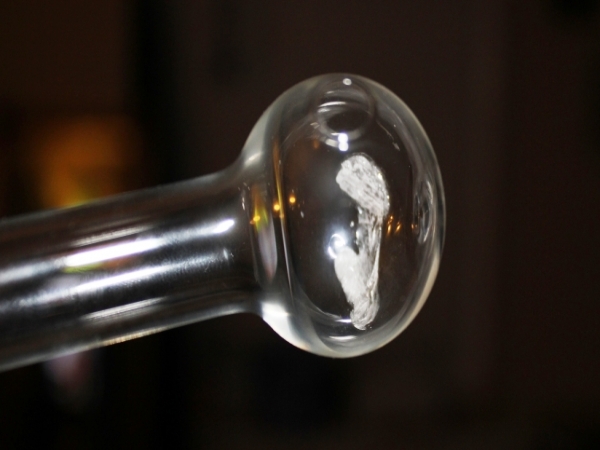Ice is becoming a national crisis.
Prime Minister Tony Abbott recently announced plans to establish a nationwide hotline enabling people to dob in a dealer and the location of drug labs.
Abbott said the new program would rely on community involvement to curb the spread of ice, an issue he describes as a “scourge on society”.
The Australian Institute of Health and Welfare (AIHW) defines ice, or crystal meth, as the purer form of methamphetamine.
According to an AIHW report, ice gives users a more intense high than any other drug. It’s also more addictive and known to cause increased psychological problems.
The report also shows that methamphetamine use has been stable over the past three years, whereas the use and availability of ice is spreading.
Dob in a dealer, which is run by Crime Stoppers Victoria, is the latest in a long line of moves by the federal and state governments to curb this trend.
Earlier this year, Abbott announced a task force that would tackle the “crystal meth menace”.
The National Ice Taskforce has, however, been met with limited success.
Former Victoria chief commissioner and head of the task force, Ken Lay, said the hardline drugs strategy has failed to restrict the availability of crystal meth.
Dob in a dealer, funded by the state government, was originally only targeted at regional Victoria.
Leading the way on the national ice fight. Launching the first cross-border operation today – http://t.co/tJxS7M25Ss pic.twitter.com/RLBYsKtvOH
— Crime Stoppers Vic (@CrimeStopperVic) August 19, 2015
Community manager at Crime Stoppers Victoria, Peter Brown, tells upstart that the initiative has already provided results, with $13.4 million worth of drugs seized in the last financial year.
“On top of that we’ve managed to close down eight clandestine drug laboratories and 117 hydroponic growing houses have all been closed down,” he says.
Tip offs have allowed the seizure of $60,000 worth of ice in Hamilton, 12 arrests in Mildura, and the potential of another 20 arrests at an ongoing investigation in Swan Hill.
The campaign has been criticised for only targeting small-time dealers, but Brown argues this isn’t an issue.
“We know the program’s successful and I’m not sure it’s a criticism to say we target small dealers, we target anybody,” he says.
While addicts themselves are unlikely to use the hotline, Brown says that families and members of the community are likely to have information, so those are the people the campaign is targeting.
Now with federal government support, Brown says Melbourne is likely to reap the benefits.
“We get almost daily calls from local police in the metro region asking for support, so we’re very keen to expand and assist those communities who are asking for help,” he says.
Commanding officer for The Salvation Army, Major Brendan Nottle, tells upstart that Melbourne’s ongoing use of ice has created a worse situation than the heroin epidemic of the 90s.
He says that users are often unpredictable, violent and irrational.
“When you see somebody affected by ice, you’re concerned for that person, but you’re also concerned for everybody around them. You just don’t know what is going to happen,” he says.
The Salvation Army runs a café for the homeless located on Bourke Street in Melbourne.
A number of violent outbursts from users has prompted safety concerns for the café. The charity initially opposed security guards and surveillance cameras, but is now considering these for safety.
“We’ve seen behaviours change significantly, both in the café and on the streets,” Nottle says.
Whilst dob in a dealer may help police access much needed information, Nottle says there are other issues that need to be addressed.
A bed shortage in treatment and rehabilitation facilities means addicts seeking help may not be able to access it.
“That’s one of the biggest issues we’ve got,” Nottle says.
“I had someone say to me just this week they were desperate to get into detox, but they face a four month wait.”
He also says that this issue needs to be addressed at earlier ages, to stop kids becoming addicted to drugs in the first place.
 Caitlin McArthur is a third-year Bachelor of Journalism student at La Trobe University. You can follow her on Twitter here: @CaitlinMcArthu1.
Caitlin McArthur is a third-year Bachelor of Journalism student at La Trobe University. You can follow her on Twitter here: @CaitlinMcArthu1.







